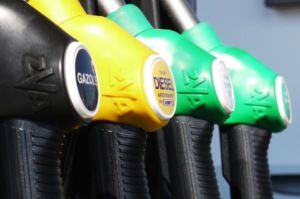News
Copenhagen keen on diesel restrictions
This article is more than 8 years old.
But support from Parliament is currently up in smoke

Will Copenhagen follow in the footsteps of Paris and the Netherlands? (photo: Pixabay)
In the wake of Oslo temporarily banning diesel cars this week, local politicians at City Hall in Copenhagen have voiced a strong desire to look into curbing diesel emissions in the capital.
Morten Kabell, the deputy mayor for technical and environmental issues, wants a restriction in place to help alleviate the hundreds of deaths that occur every year due to air pollution in the city.
“Petrol cars don’t emit near as many particles – particularly the ultra-fine particles that come from diesel cars and trucks,” Kabell told Ekstra Bladet tabloid.
“That’s why a city like Paris is completely banning diesel cars from entering the city from 2020, whether they are fitted with particle filters or not.”
Kabell also pointed to the Netherlands, which has pledged to ban the sale of diesel cars by 2020.
Pernickity Parliament
But while there is a majority at City Hall in favour of banning diesel cars without particle filters from entering Copenhagen, the decision would require the support of a majority in Parliament. And in Christiansborg, the political will has been found wanting.
“I don’t think we should come up with some form of ban overnight, which would put diesel car owners in a precarious position,” Rasmus Prehn, the spokesperson for transport issues for Socialdemokratiet, told Ekstra Bladet.
“We definitely need to follow the development closely and see what we can do, but I think it’s important that if we act, it would be small and slow steps so people have a realistic chance of making the transition.”
A ban would mean that motorists caught driving in the city without the legal particle filters would be fined, as is currently the case regarding trucks without filters in the city.
But until that proposal becomes a realistic option in the halls of Parliament, City Hall is working towards establishing a ‘clear air zone’ in the city, which would ban diesel cars without particle filters – an idea that Prehn was more in favour of.
It is estimated that 540 people die as a result of air pollution in Copenhagen every year.










































